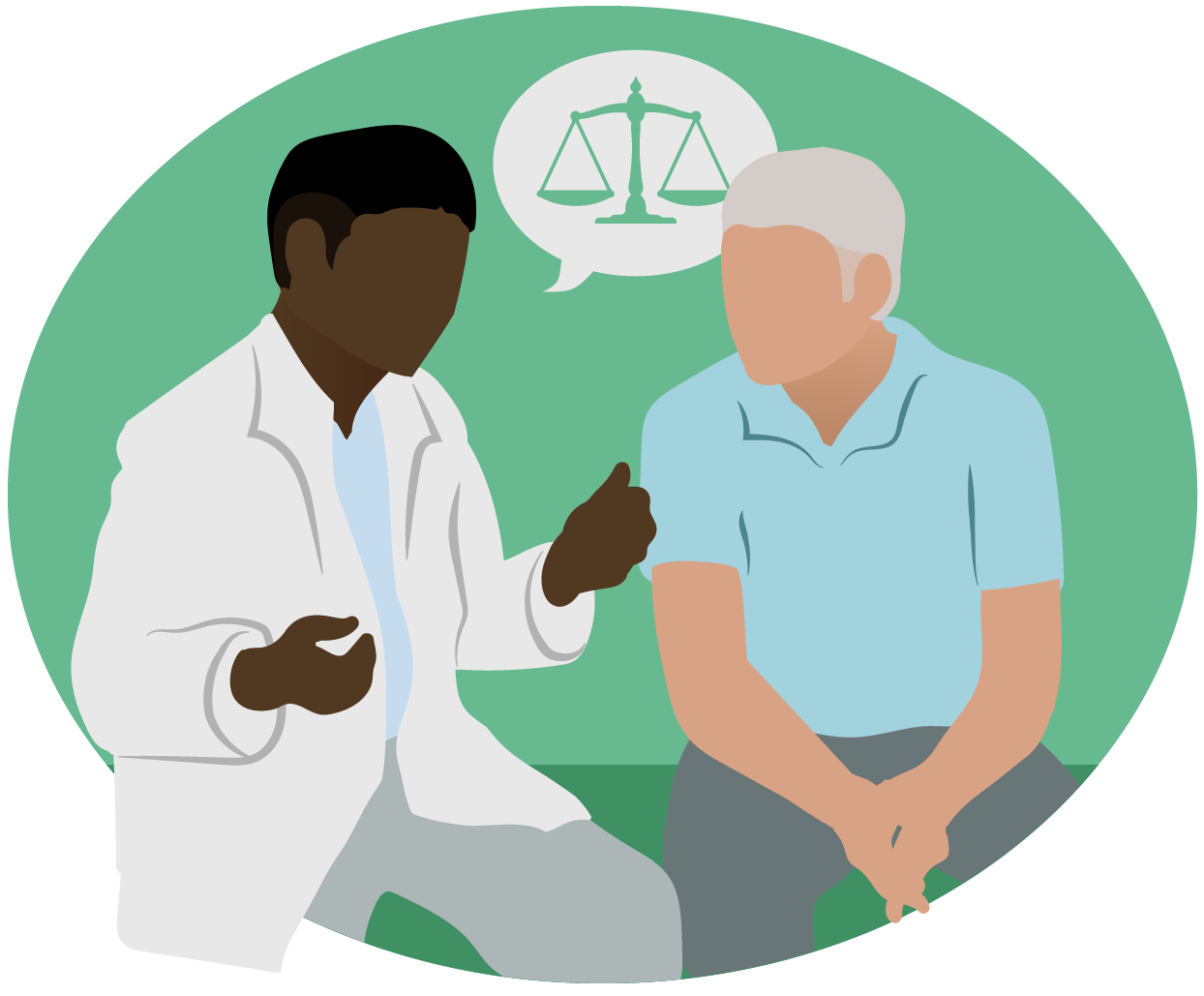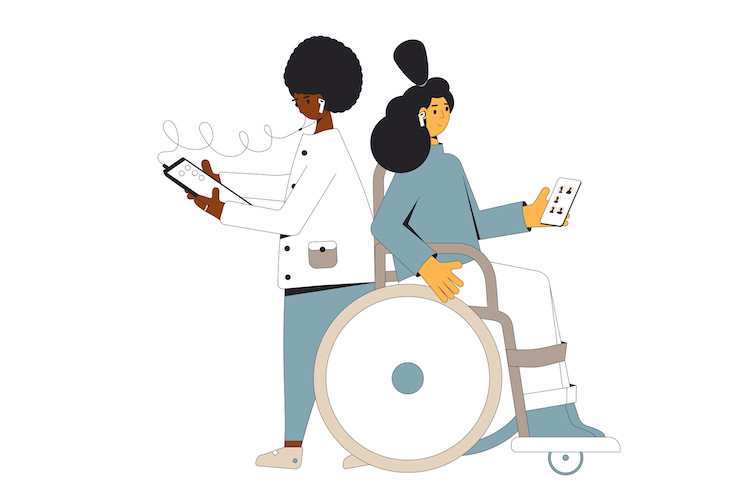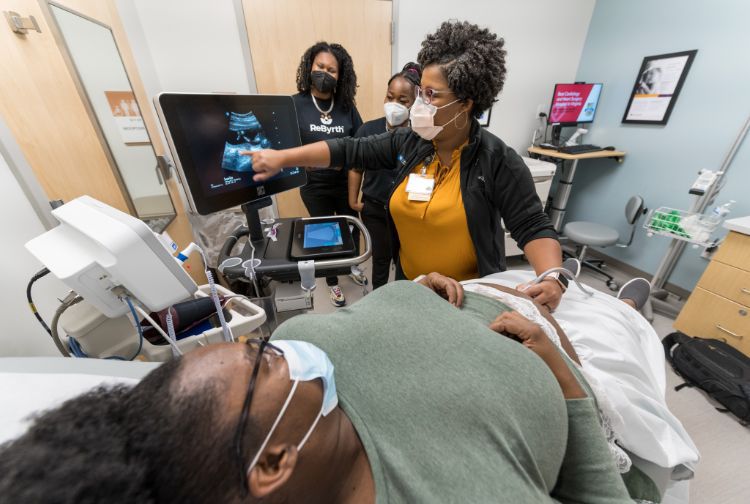Medical student orientation session sheds light on systemic health inequities
The Crucial Conversations session sets a foundation for incoming medical students around health equity and the policies that impact Richmond’s most vulnerable populations.

Crucial Conversations is a session held during M1 student orientation that addresses issues of racism and discrimination within health care. (Illustration by Uri Hamman, VCU School of Medicine)
For the fourth consecutive year, VCU School of Medicine’s newest medical students gathered for an introduction to an evolving discussion of race, discrimination and health equity. There were passionate presentations, an engaging Q&A and a range of emotions.
“I think when the days get tough in our trainings, it will be important for us to remember the things they talked about today and the real reason why we chose medicine,” said Shivam Patel, an M1 who graduated from VCU with bachelor’s degrees in biology and chemistry.
While the session may have been some students’ first open discussion about systemic health disparities, it was the first of many, as these topics are inextricably woven into VCU’s medical education. According to Kevin Harris, Ph.D., senior associate dean for diversity, equity and inclusion (DEI) at the School of Medicine, this contextual backdrop is critical for future doctors. By introducing students to not just the facts but the lives affected by them early on, School of Medicine leaders hope that this generation of future doctors will approach all their patients with empathy and improve health outcomes for underserved populations.
“Crucial Conversations impresses upon our incoming students the importance of these realities as they not only begin their careers in medicine, but also begin engaging with Richmond and VCU Health’s diverse patient populations,” Harris said.
Beginning the conversation
Born out of both an institutional desire for deeper conversations about the core values of DEI and medical students’ own yearning to highlight these topics amidst the nationwide social unrest throughout the summer of 2020, the Crucial Conversations session started as a speaker series.
The first iteration, moderated via Zoom by Harris at the start of the fall 2020 semester, sought to shed light on some of the history, culture and factors that created the modern academic medicine environment. The presentation emphasized that while progress has been made, discriminatory systems and practices persist and continue to create barriers to equitable care for all patients.
This year, the Class of 2027 gathered in the School of Medicine’s historic Egyptian Building to engage in these conversations. The all-day session included an introduction to DEI at VCU, the history of VCU’s East Marshall Street Well Project, a discussion about health equity and social determinants of health and a presentation on the Black maternal health crisis.
“We practice diversity in a holistic way in the School of Medicine,” Harris said. “Each of us has a stake in the diversity space and as citizens of this community, have an obligation to share our narrative, our perspectives, because, after all, we all matter. These crucial conversations allow for the opportunity to learn and discuss how one navigates a new space. Whether it’s new literacy or understandings of health policies, there will always be room for these conversations to grow.”
In 2022, guest speaker Charles Johnson, a Black maternal health advocate, helped grow these conversations for students through his personal story of avoidable loss.
The faces behind the facts
In 2016, following an uncomplicated pregnancy, Johnson’s wife, Kira, delivered their second child via a routine C-section in Los Angeles, Calif. After spotting blood in her catheter bag, Johnson alerted Kira’s medical team and continuously pled with them to run additional tests – to which, at one point, a nurse told Johnson, “Sir, your wife just isn’t a priority right now.” Hours later, Kira was rushed into emergency surgery where she died of internal hemorrhaging.
The following year, Johnson founded the nonprofit 4Kira4Moms to honor his wife and advocate for families facing the maternal health crisis and the silencing of Black voices in health care. Johnson’s presentation, titled “And then she was gone,” reveals the timeline of events from the birth of their second son to Kira’s preventable death, and the “lack of fundamental human decency” as the greatest failure of all.
What it came down to, he said, was implicit bias and racism towards women of color. Studies show that physical pain of Black patients is systematically underdiagnosed and undertreated compared to their white counterparts, and Black women are nearly three times as likely to die in childbirth than white women.
“The U.S. is the most expensive country to give birth and one of the most dangerous countries to give birth in, particularly for Black women,” Johnson said.
Kellen Nani, an M1 from the University of California San Diego, appreciated the humanity and connection of Johnson’s story.
“It is much more impactful when you’re hearing these sorts of things from someone who’s been impacted by this crisis directly, rather than simply looking at nameless and faceless data,” Nani said.
Connecting human stories to the data is what inspired M2s Shem Kentish and Sydney Barksdale to form Medical Students for Maternal Health Equity (MSMHE), a student interest group dedicated to exploring and addressing the Black maternal health crisis.
Along with fellow founding members Mia Peri and Aaria Malhotra, Kentish and Barksdale introduced Johnson to the M1s at this year's session, and later reflected on their own experience seeing him speak at VCU for the first time.
“I was bawling my eyes out,” Kentish recalled. “I just kept thinking about my two sisters and my mom.”
Barksdale was already familiar with the crisis and Johnson’s story, and it was the reason behind her decision to pursue medical school and a career as an OB-GYN. “I had seen a video of Charles testifying in front of Congress, but it was gut-wrenching to hear his story in person,” Barksdale said.
Since starting the group last year, MSMHE has worked with organizations like 4Kira4Moms, and they hope to partner with local maternal health organizations to host events, lead discussion panels and spread awareness of the Black maternal health crisis.
'History is a continuum'
Johnson's story is just one example of how systemic racism and implicit biases impact patients and their families every day. And now, after four consecutive years of the Crucial Conversations session, plus with ongoing longitudinal courses and other learning opportunities, every medical student on the MCV campus is equipped to identify these issues and continue to address them throughout their education and future practice.
Moving forward, Harris and others hope to be able to continue incorporating these crucial conversations into the School of Medicine’s curriculum by adapting the sessions to emerging trends in medicine that will help improve health outcomes for all patient populations. As Harris notes, like history, these conversations will continue to evolve.
“History is a continuum,” Harris said. “It doesn’t stop, and we don’t start anew. We’re shaped by history, but we’re not trapped in it.”


